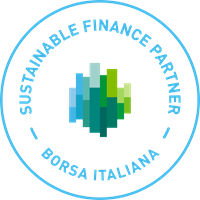This content was updated on 11/29/2022
The CSRD directive has been adopted, approved first by the Parliament and then by the European Council.
Soon the sustainability reporting requirement will come into effect affecting a very wide range of companies, including SMEs.
Let’s see together what will happen in the coming months and what companies can do to comply and not fall behind.
Corporate Sustainability Reporting Directive: all set for entry into force
On Nov. 10, 2022, the European Parliament finally adopted the Corporate Sustainability Reporting Directive (CSRD). CSRD extends the non-financial reporting requirement to more companies, including SMEs, by requiring them to publish a sustainability report as a document to inform the public of the impact that the company and its activities have on society, the environment, people, and the planet, including indicating the sustainability risks to which it is exposed.
The CSRD is an extension of the Non Financial Reporting Directive (NFRD), designed to amend the latter in a process that began on April 21, 2021.
This process ended with the European Council’s approval on November 28, 2022; now member states must adopt the new rules within 18 months.
CSRD will be equated with NFRD. Recall that the latter was transposed into our legal system through Legislative Decree.
254/2016 and introduced the Non-Financial Statement (DNF) requirement for public interest entities.
Sustainability reporting: the gradual entry into force of the obligation
The sustainability reporting requirement will be phased in gradually and will gradually affect more and more companies:
- From January 1, 2024: large public interest enterprises (PIEs) with more than 500 employees already obligated today to prepare and publish DNF (Non-Financial Statement). Reporting 2025 on fiscal year 2024;
- From January 1, 2025: large enterprises not yet required to publish DNF with more than 250 employees and/or €40 million in turnover and/or €20 million in total assets.
Reporting 2026 on fiscal year 2025;
- From January 1, 2026: listed small and medium-sized enterprises (SMEs), excluding microenterprises, small and non-complex lending institutions, and captive insurance companies.
Reporting 2027 on fiscal year 2026;
- From Jan. 1, 2027: third-country companies with at least one branch in the European territory and a net turnover of 150 million euros in the EU.
Until 2028, SMEs can choose not to participate, although-as we shall see-this would result in a disadvantageous action for the enterprise itself.
Sustainability reporting should be part of the management report, a document that has so far been mandatory only for publicly traded companies, thus becoming an integral part of corporate reporting.
Purpose of CSRD and sustainability reporting standards
The new Directive was introduced to meet several needs.
First and foremost is to eliminate the shortcomings inherent in the NFRD, which was considered to be lacking in transparency about social, environmental impacts and European climate goals.
CSRD also aims to reduce greenwashing events, strengthen the European social market economy and lay the new foundation for global corporate sustainability standards.
During 2023, the European Commission will adopt new rules useful for CSRD implementation; at the moment, there is still no final format for sustainability reporting.
On the other hand, as far as reference standards are concerned, the body in charge in June 2020-the EFRAG (European Financial Reporting Advisory Group)-approved the final version of the ESRS (European Sustainability Reporting Standards).
These set out the rules and requirements for sustainability reporting by companies, impacts, opportunities and risks related to sustainability.
CSRD, NFRD, SFDR and European Taxonomy: let’s understand the differences
Over the past few years, the European Parliament has adopted several provisions to enable the transition to a sustainable economy and facilitate the achievement of the goals outlined in the Paris Agreement and the European Green Deal.
The NFRD, which introduced the Non-Financial Reporting requirement, was followed by regulations such as the Sustainable Finance Disclosure Regulation (SFDR) and the European Taxonomy Regulation.
The former, effective from March 2021, introduces sustainable finance requirements aimed at EU-based investment firms, which are required to report on the social and environmental impacts of their financial products.
The
Taxonomy, on the other hand, is a guide for classifying economic activities deemed environmentally sustainable.
These provisions, combined with CSRD, serve the Union to establish a fair and transparent system for comparing and analyzing the socio-environmental information of European companies.
Sustainability reporting: what changes for businesses?
With the entry into force of the CSRD directive, companies are more accountable to the public about their social and environmental impact and the information they disseminate.
Therefore, following the above, they will have to adapt to the new obligation, prepare to be audited and acquire independent certifications to prove the veracity of the published information.
Companies will need to provide details about their chosen sustainability strategy, goals, corporate policies, action plans; provide information about material assessments of environmental and social impacts, governance details, and more.
Businesses and sustainability reporting: how to prepare so as not to fall behind
Sustainability reporting allows companies to communicate to the public, inside and outside the company, their virtuousness, their ability to add and be of value to the planet and society.
It also brings several benefits, including:
- Access to credit lines and ad hoc incentives;
- Supporting and improving business planning;
- Enhancement of corporate image.
Businesses and SMEs that want to prepare for this change can begin to familiarize themselves with the concept of corporate sustainability by taking advantage of channels dedicated to corporate sustainability, such as our
Tecno Talks, by learning about the testimonies of those who have already successfully traveled the road to sustainability.
Once the necessary information has been acquired , it is only right to know the ESG level of one’s company, through an assessment that complies with current regulations, in order to understand-with the help of expert minds-where the company’s actions to date have led and how to proceed in the future to improve the company’s ESG score.
Having set the course, all that is left is to be guided by a qualified team toward the actions necessary to report on the company’s nonfinancial performance and prepare the sustainability report, even in voluntary form.
Tecno: the ideal partner for ESG strategy and sustainability reporting
There are already many companies that while not obligated to prepare a sustainability report have chosen to do so on a voluntary basis, understanding its potential.
With our proposals-innovative and transparent-access solutions that are compliant with current regulations, expendable on multiple fronts, and capable of meeting your business needs and surprising stakeholders.
- ESG strategy
- Pathways to sustainability
- Sustainability Report
- ESG communication plan
Contact us to learn more.


